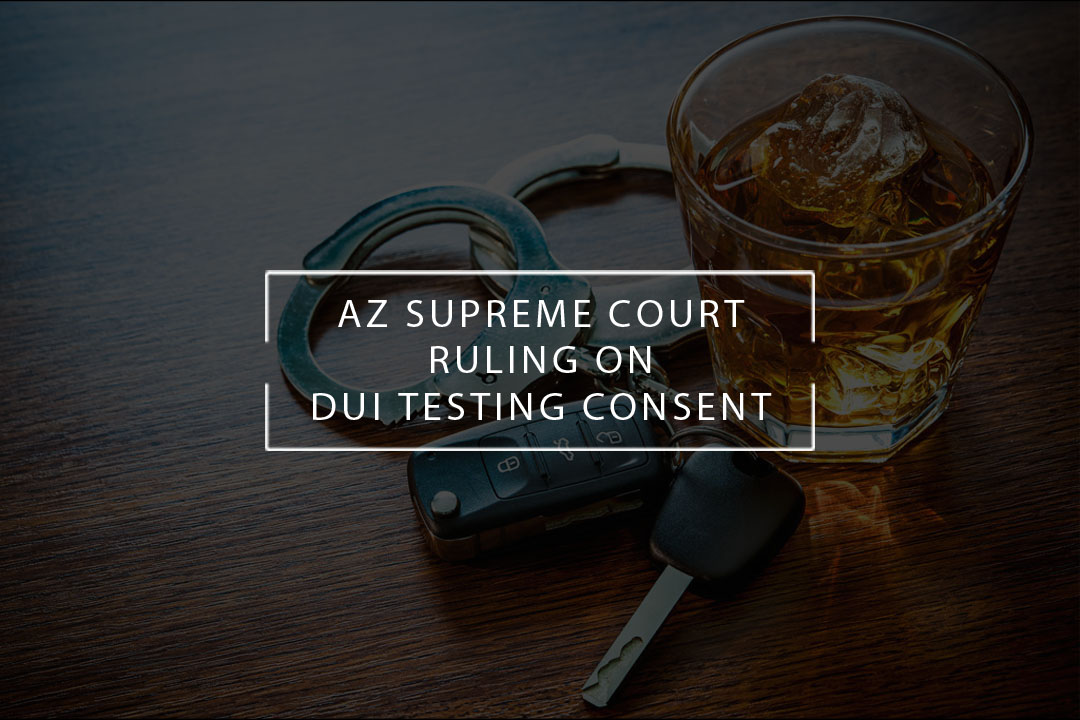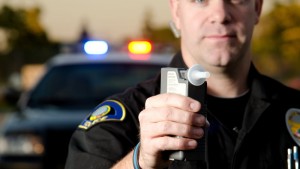Arizona Supreme Court ruling on DUI testing consent
Earlier this year, the Phoenix Arizona Supreme Court decided that police no longer have the power to force a drunk driver suspect to submit to alcohol testing. The decision was made for basically one reason: Suspects can absolutely refuse to submit to alcohol testing. Forcing a citizen to do so actually violates their right against unreasonable searches without a warrant, also know as their Fourth Amendment right. If there is a case where a driver was misjudged for being under the influence and they are forced to take an alcohol test, a DUI lawyer in Phoenix or DUI defense attorney in Phoenix representing the suspect could hold the officer responsible for violating the driver’s rights.

Officers now have to ask suspects to consent to alcohol testing rather than tell them it is required. Police must also tell drunk driving suspects that by refusing an alcohol test they many face serious consequences such as losing their driver’s license for over a year.
Understanding Arizona DUI laws
Phoenix, Arizona is considered a no tolerance state. This means that you can absolutely be arrested for having a blood alcohol content (BAC) of less than the national legal limit of 0.08 percent. There are several types of DUIs in the state that take into account blood alcohol content levels and additional factors that include previous offenses and the presence of minors.
The three types of DUIs in Arizona are as follows:
- A.R.S. §28-1381 (A)(2) DUI-Impaired to the Slightest Degree. This law makes it unlawful for anyone to drive a vehicle while under the influence of any intoxicating substance or drug such as alcohol. When it comes to this law, the government must prove that you were driving a vehicle while impaired by a drug. Blood alcohol content levels do not matter when it comes to this law. Proof is the most important element to this law, and the government will have to prove that even though you were under the legal limit, you were influenced or impaired in a dangerous way that threatened the safety of others. This law is usually held along with one or both of the following laws to aid in a conviction.
- A.R.S. §28-1381(A)(2) DUI-Blood over .08 Percent. This is the most common and well known conviction for a DUI. If a driver’s blood alcohol content is over 0.08%, which is considered the national blood alcohol level limit to drive, they can be arrested and charged with a DUI. If one’s alcohol content level is 0.08% or more within a couple of hours of driving, they can be convicted. In order to be charged with this strict liability statute violation, it must be factually proven that your blood alcohol content level was over 0.08% within a couple hours of driving and that you were absolutely the one driving the vehicle. When it comes to actual impairment, your ability to safely drive is disregarded and your blood alcohol content level is the only important factor to deciding on a conviction.
- A.R.S. §28-1381(A)(3) DUI-Drugs. This DUI violation entails that it is completely unlawful for any person to operate a vehicle while under the influence of impairing drugs or while a ‘metabolite’ of the drug is within the body. A metabolite is the substance your body converts the drug too once ingested or inhaled. Drugs commonly included in this law are marijuana, prescription medication, and their metabolites. Recently, Arizona laws have changed so that medical marijuana users may drive while the marijuana metabolite is in their system as long as it can be proven that the presence of a metabolite did not impair or influence the driver while operating the vehicle. The suspect in question or their representing DUI lawyers or DUI defense attorney will be able to defend themselves with proof that the suspect was a legal medical card carrying citizen and that they were in no way impaired by the inactive metabolite while driving. This recently changed law also covers prescription drug users who can prove they were using their medication as directed and have a valid prescription for the drug.
Should I consent to alcohol testing?

This is really up to you. As the law states (and the officer who suspects you of drunk driving must legally tell you) you may be asked to consent to alcohol testing if you are suspected of drinking and driving. Refusal to do so can result in the suspension of your license. However, it is not outright required for you to take an alcohol test and there are no criminal consequences for refusing. More often than not, it may be a wise idea to submit to testing. However, if an officer forces you to do so, your rights may be violated and a case could stand up in a court of law.
If you have been wrongly forced to submit to alcohol testing, it would be wise to seek out a DUI lawyer or a DUI defense attorney to see if you have a case against the officer who violated your rights.
The best law firm in Arizona
If you need to find a DUI lawyer or DUI defense attorney, look no further than My AZ Lawyers, PLLC. Our team of talented, experienced, and niche attorneys are experts in DUI law. Do not risk your future by putting it in the hands of lawyers who do not have the right knowledge. The team at My AZ Lawyers, PLLC will match you with an ideal lawyer that will fight for you. Give us a call today for a consultation on your case.











